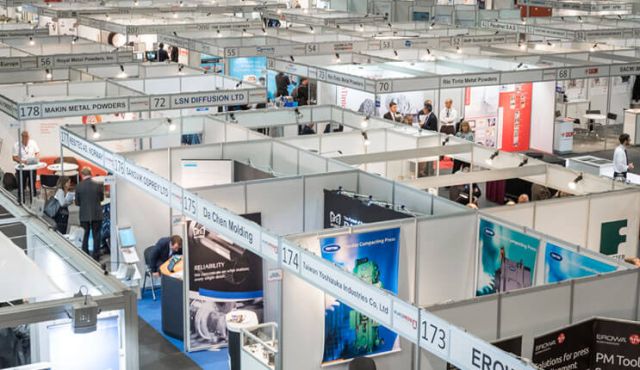
by admin | May 25, 2021 | Corporate, Corporate Buzz

Mukesh Ambani
New Delhi : Noting that data should be used for the betterment of the country, Reliance Industries (RIL) Chairman Mukesh Ambani on Thursday said data must be uitlised with “adequate safeguards”.
Addressing the inaugural session of the Indian Mobile Congress (IMC) here, he described data as “the most important resource of the new age”.
“It is important that we use this rich resource for benefits of India and Indians, with safeguards,” Ambani said.
The RIL Chairman also said that all phones in India would be connected with the high-speed 4G network by 2020.
“By 2020, India will be fully 4G,” he said adding that, by that time the country would be ready for 5G connectivity.
The inaugural session of the second edition of IMC was also attended by other industry players including Bharti Airtel Chairman Sunil Bharti Mittal and the Vodafone Idea Chairman Kumar Mangalam Birla.
The conference was earlier inaugurated by the Communications Minister Manoj Sinha. IT Minister Ravishankar Prasad, Urban Affairs Minister Hardeep Singh Puri and Commerce Minister Suresh Prabhu also were present on the occasion.
—IANS

by admin | May 25, 2021 | Branding, Business Summit, Events, Marketing Basics, Markets, Technology
 By Nishant Arora,
By Nishant Arora,
New Delhi : For a technology reporter, the word “mobile” evokes automatic interest. And for a tech junkie, a Mobile Congress means a platform where you get to see new gadgets, upcoming smartphone technologies, various prototypes pertaining to Artificial Intelligence (AI)-based solutions, Augmented Reality (AR) and Virtual Reality (VR) being showcased, and so on.
In its first-ever edition, the Indian Mobile Congress (IMC) appears to have done a fair job — with top telecom and IT stakeholders gathering and brainstorming over India’s digital transformation, upcoming 5G technology, smart cities, cyber security and the like — but the absence of mobile handset makers and new announcements (barring one — an LG “mosquito repellent” smartphone) left the geeks disappointed.
According to experts, it would have had been great to tie-up with domestic manufacturers like Micromax, Karbonn and Intex and Chinese vendors like Xiaomi, Lenovo, Oppo, Vivo and Huwaei’s Honor — not to forget Apple and Samsung — and convince them to schedule new launches or announcements for the event.
An early pitch from the organisers to reach out to smartphone makers would have had seen more tech reporters and bloggers making a beeline to the event for a true “Mobile” experience along with a strong policy engagement platform.
Similarly, some upcoming tech trends from chip manufacturers, Original Equipment Manufacturers (OEMs) and Original Design Manufacturers (ODMs) could also have had been looked at in advance.
“The absence of handset makers, especially Indian brands to the extent they could have been here, is noticeable. Handsets do complete the ecosystem,” Faisal Kawoosa, Principal Analyst, Telecom and ESDM, CyberMedia Research (CMR), told IANS.
According to Tarun Pathak, Associate Director, Mobile Devices and Ecosystems, Counterpoint Research, IMC 2017 was more of a Business-to-Business (B2B) event.
“Such events can be good platforms for the overall mobile ecosystem, especially for start-ups. So instead of being dominated by a couple of players, we might see more tech players’ involvement in the future,” Pathak told IANS.
At least 10-15 days prior to IMC 2017, there were some high-profile phone and notebook launches in India. An earlier effort to patch them in for the IMC platform would have had done wonders for the event.
“More marketing around the event would have helped to get smartphone players and their upcoming prototypes being showcased at the event,” Pathak added.
Touting the IMC 2017 a success, the organisers said many more industry players now want to participate from next year.
“This has been a good beginning. Many more players want to participate next year, so we hope that in the years to come, IMC will be established as a prominent platform for the mobile, Internet and technology ecosystem in India,” Information Technology Secretary Aruna Sundararajan told the gathering on the second day of the event.
When asked if any significant investment announcement was made, Rajan S. Matthews, Director General of the Cellular Operators’ Association of India (COAI), said: “IMC was not intended to be a forum to make such announcements out of context. This event provides a platform for various stakeholders, including the government, to interact and help make decisions.”
The three-day event had 21 sessions with themes like “Digital India”, “Internet Governance”, “Smart Network: The Future of Networking”, “Digital Identity for Digital World”, “Women in Tech”, “Cloud & Virtualisation”, “Digital Infrastructure Towards the Digital Economy” and others.
The event also has thematic pavilions and innovation zones, featuring 300 exhibitors. It also claimed to attract more than 500 start-ups, 2,000 delegates from India and other countries with 150,000 footfalls.
“Overall, I think COAI, with patronage from DoT, has done a great job in the first edition of IMC. I think the seminars were also of great quality,” Kawoosa added.
“The biggest achievement though remains bringing Jio many steps closer to incumbents, possibly marking the era of collaboration,” Kawoosa noted.
However, if the organisers take a cue from the Mobile World Congress in Barcelona — the world’s largest gathering for the mobile industry, organised by the GSMA — the next event can truly be a “Mobile” experience for those interested in tracking technology trends.
(Nishant Arora can be contacted at nishant.a@ians.in)
—IANS


